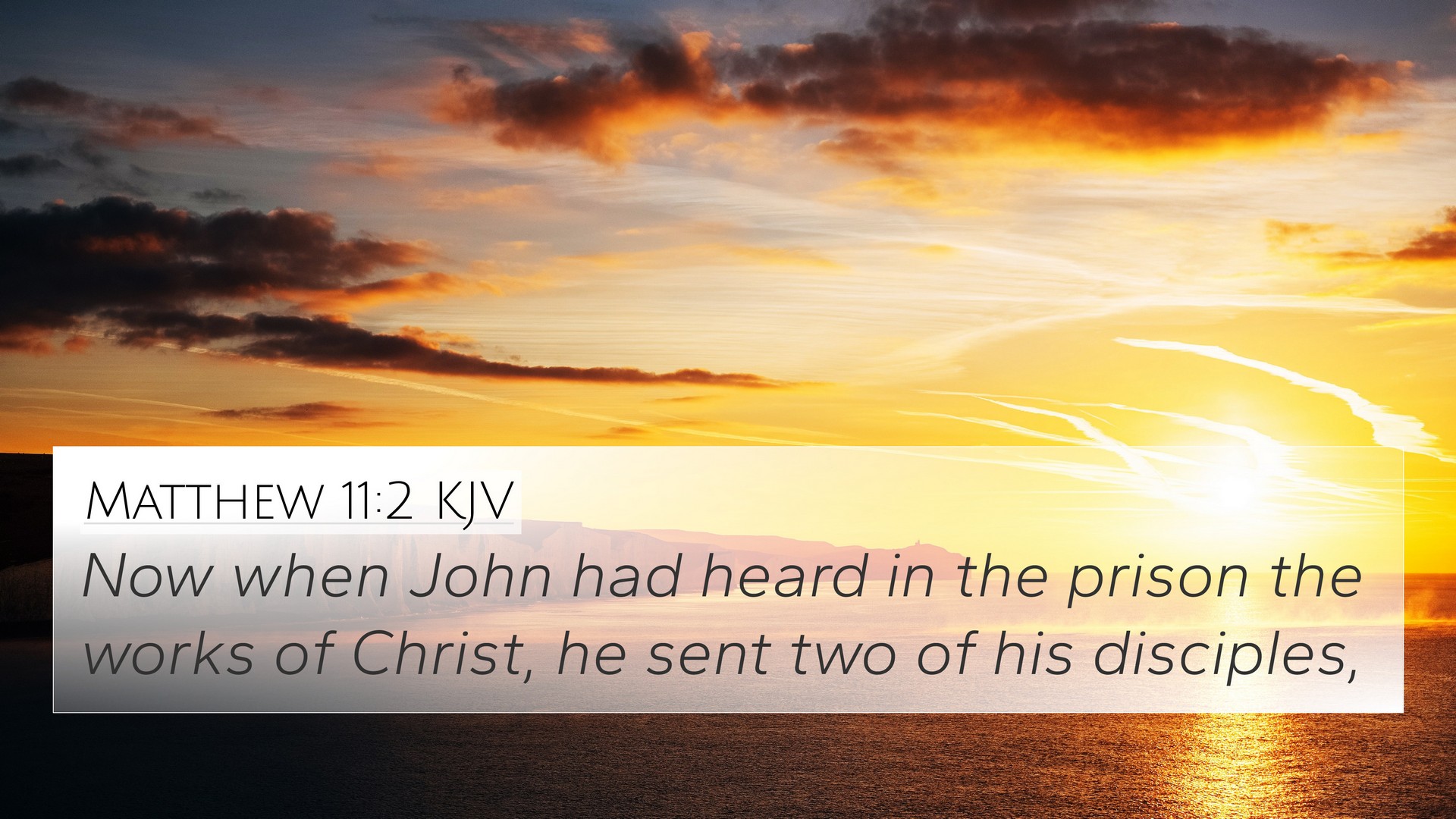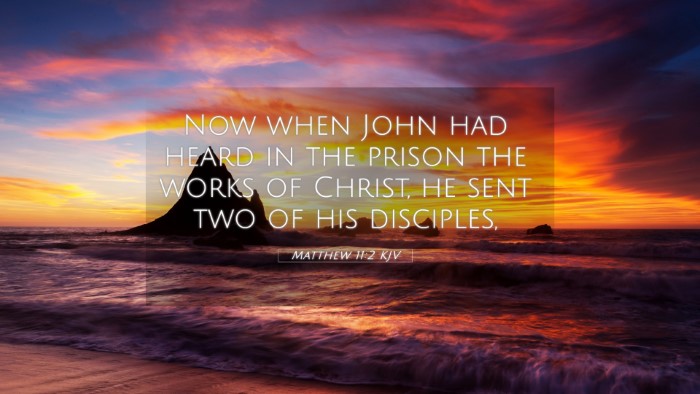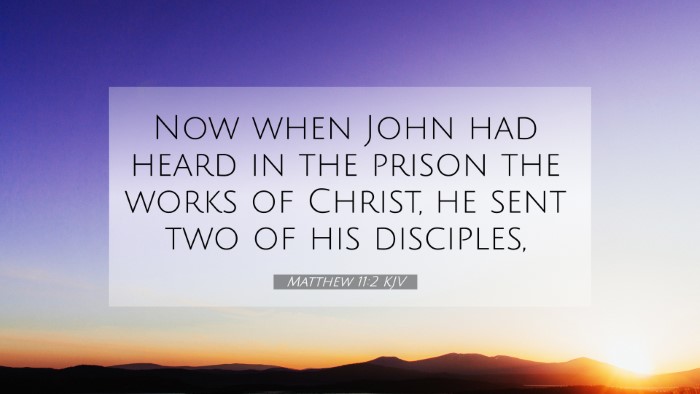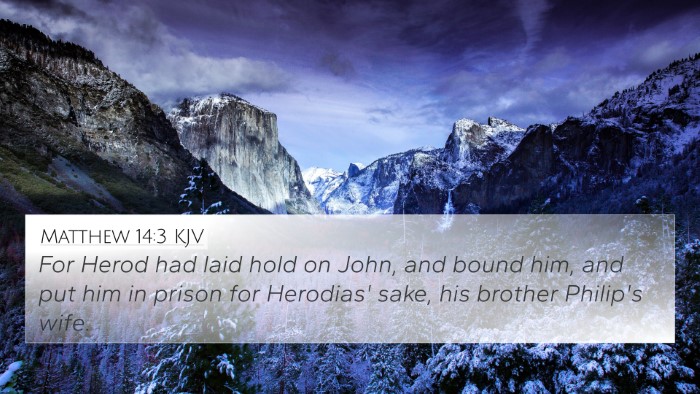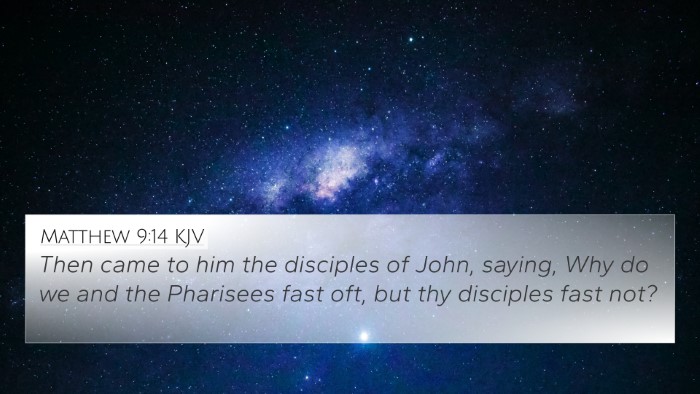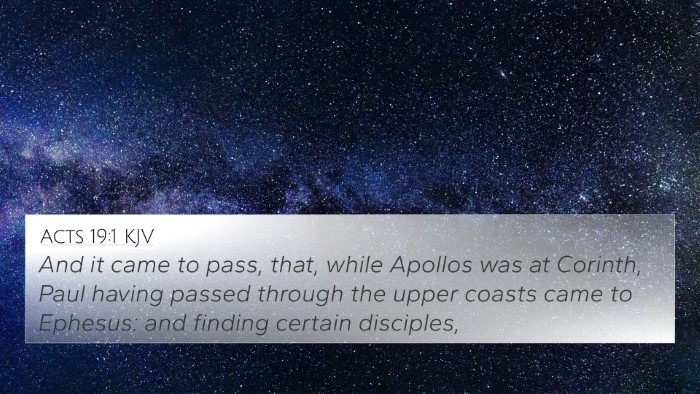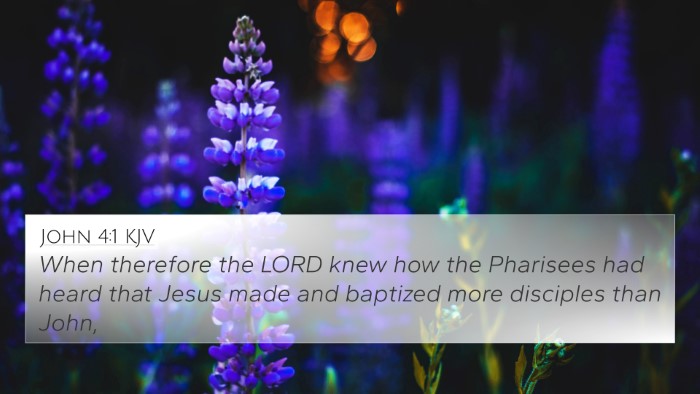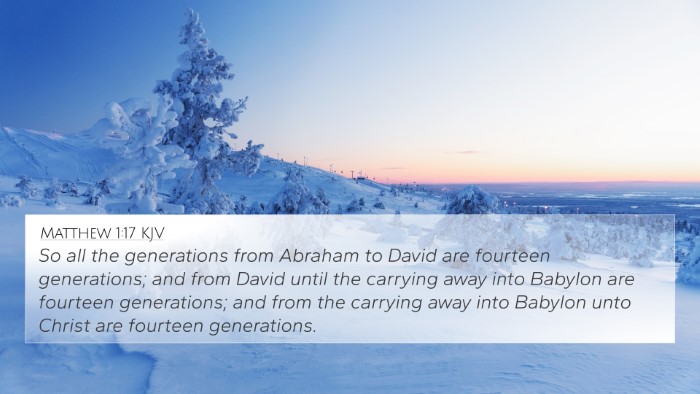Matthew 11:2 - Understanding the Verse
“Now when John had heard in the prison the works of Christ, he sent two of his disciples.” (Matthew 11:2)
This verse marks a significant moment in the ministry of John the Baptist. After his imprisonment, John's doubts began to surface regarding Jesus' true identity and mission. This passage provides an opportunity to explore the complex relationship between John and Jesus, their theological significance, and the implications of this passage within the broader biblical narrative.
Historical Background and Context
Matthew 11:2 situates us in a critical phase of Jesus' ministry while also acknowledging John's circumstances. Imprisoned by Herod, John the Baptist faced an uncertain future, which fueled his desire for clarity regarding Jesus' role as the Messiah.
Insights from Public Domain Commentaries
Matthew Henry's Commentary
Matthew Henry reflects on John's significant role as the forerunner to Christ. John’s question is not one of disbelief but illustrates a moment of uncertainty as he wishes to confirm that Jesus aligns with the prophesied expectations of the Messiah.
Albert Barnes' Notes
Barnes emphasizes the importance of doubt in the life of a believer. John's inquiry underlines the tension between expectation and reality, showcasing how even the most faithful can experience moments of uncertainty. Barnes connects this to the prevailing theme of faith amidst struggles.
Adam Clarke's Commentary
Clarke delves into the societal and religious context of John's doubts. He points out that John's inquiry reflects a profound desire for understanding in the face of suffering, which resonates with many believers' experiences throughout scripture.
Thematic Connections
Matthew 11:2 is not an isolated verse; it interweaves multiple biblical themes and themes from the Old and New Testaments. Below are key thematic connections:
- Prophecies of the Messiah: John's role as the forerunner connects with Old Testament prophecies, particularly Isaiah 40:3, which speaks of a voice crying in the wilderness.
- Fulfillment of Expectation: Jesus' response in Matthew 11:4-6 reveals the fulfillment of messianic expectations as outlined in passages like Isaiah 61:1-2.
- The Role of Suffering: This verse illustrates the theme of suffering, correlating with passages such as 2 Timothy 3:12, where Paul speaks on enduring persecution for faith.
- Faith and Doubt: John the Baptist's doubts resonate with modern believers, akin to Thomas' doubts as seen in John 20:24-29.
- Discipleship: John's sending of his disciples highlights the importance of mentorship and spiritual guidance, which plays a bigger role throughout the Gospels, like in Matthew 28:19-20.
- The Nature of Jesus’ Works: The miracles and works of Jesus are highlighted, akin to John 14:11, where belief in Jesus is encouraged through his miraculous signs.
- The Kingdom of Heaven: The response from Jesus that follows John's inquiry ties into the larger narrative of the Kingdom and its characteristics as discussed in Matthew 5-7.
Bible Verse Cross-References
For a deeper understanding of Matthew 11:2, consider the following scriptural cross-references:
- Isaiah 40:3 - Prophecy of a forerunner.
- Matthew 3:11-12 - John’s declaration of Jesus’ greater ministry.
- John 1:29 - Introduction of Jesus as the Lamb of God.
- Isaiah 61:1-2 - Proclamation about the Messiah’s mission.
- John 14:12 - Jesus' promise of the works his followers will do.
- 2 Timothy 3:12 - The expectation of suffering for faith.
- John 20:24-29 - The doubt of Thomas and the blessing of faith.
Conclusion
Matthew 11:2 serves as a profound moment of introspection for both John the Baptist and believers today. It emphasizes the human experience of questioning faith in difficult circumstances while also affirming the divine confirmation of Jesus as the Messiah. Through cross-referencing biblical texts, one can gain a richer understanding of the relationships between scripture, the thematic continuities throughout the Bible, and the transformative power of faith amidst doubt.
Exploring Cross-References and Themes
For those engaged in Bible cross-referencing, identifying connections between Old and New Testament passages can illuminate scriptures' interpretative richness. Utilizing bible concordance tools and reference resources enhances personal and congregational study.
Explore disparate themes such as suffering, discipleship, and messianic prophecy across both testaments to find deeper meanings and applications for modern believers. The act of cross-referencing Bible verses enables individuals and groups to see how scriptures relate, related this back to Matthew 11:2, bridging human experience with divine purpose.
